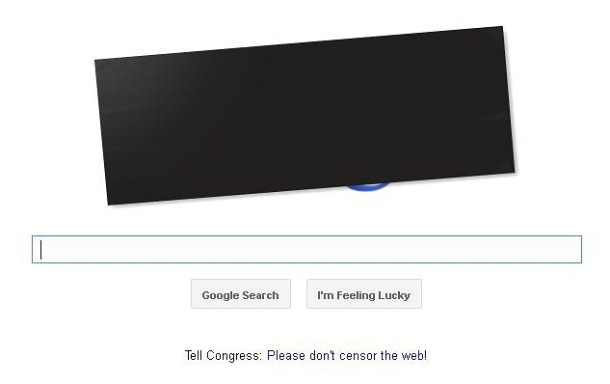A better SOPA: Create Silicon Valley jobs in Hollywood, give Washington the boot

By now, you've surely heard of SOPA and PIPA - the black bar over the Google logo all day yesterday was probably the first clue. Google, Wikipedia and others were among the big online companies protesting The Stop Online Piracy Act (SOPA) in the U.S. House of Representatives and the Protect IP Act (PIPA), a similar bill in the U.S. Senate.
The bills, which aimed to curb piracy across the Internet, fell under fire not because of what they're trying to accomplish, but instead because of how they go about accomplishing it. The bills essentially shift the burden of policing the Internet for piracy from the copyright holders to third-parties, such as social networks, web sites, blogs or search engines.
No one is a fan of online piracy but Google shouldn't be forced to alter its search results (read: censor) just because it indexed a web page that contained an unauthorized copy of an image or a YouTube clip that was posted without permission. The burden is in the wrong place - copyright holders should be the one to notify the proper entities when they spot illegal use.
Wednesday's online protests spread like wildfire on the Internet, via blogs, tweets and social media. Within hours, members of Congress (who are already dealing with record-low approval ratings) started backpedaling on their support for the bills, including Sen. Marco Rubio (R-Fla.), a one-time co-author of PIPA. President Obama had said days earlier that he would not support the bill.
So what does that mean? Victory for the people? Hollywood gives up? Ha. I didn't think so either.
Kick Washington to the curb
The biggest problem with letting Washington set the stage for this latest debate is that - again - the burden is in the wrong place. Just as it's not Google's responsibility to police the Internet, it's not Washington's responsibility to come up with a solution to this problem. It's the responsibility of the copyright holders - the RIAA, the MPAA, the studios, the labels and so on. There's a constant call for smaller government so it makes no sense to bring Washington in to try to save the day for something that can - and should - be handled by Hollywood and Silicon Valley, two regions who seem to have more money that Washington these days.Here's an idea: Let's create some jobs in Hollywood, some techie jobs where geeks with Hollywood money work around the clock (like startup mode) to develop innovative new tools for fighting back against the pirates. Meanwhile, in Silicon Valley, entrepreneurial piracy-fighting geeks meet deep-pocketed venture capital guys and a business is born.
You can't sit there and tell me that the Chinese and the Russians who have figured out how to use technology to build massive piracy operations are smarter than our own American techies who can probably come up with some really innovative ways to fight back.
Hollywood and Silicon Valley could join forces
There's been a long time sibling-like rivalry between Hollywood and Silicon Valley. Consider how SoCal once owned the music industry but, as the push toward digital became more like an avalanche, the power shifted to the tech companies in NorCal, notably Apple. Piracy has only further strained the relationship between the two industries.So here's an opportunity for two squabbling cousins to shake hands, partner up and develop ways to combat these big piracy rings - either by doing a better job of blocking them or developing better business models so your customers won't even bother with the pirates. Hollywood helped the tech industry push the popularity of gadgets. Now, maybe Silicon Valley can help the entertainment industry to protect itself.
Whatever you do, please kick Washington to the curb already. They already have enough drama going on over there. We don't need them screwing this up, too.
Related coverage:
- For this editor, SOPA web protest left an impression
- How did the SOPA web blackout protest affect you?
- Consumerization, SOPA and the RIAA
- Facebook CEO Mark Zuckerberg talks SOPA, PIPA
- Microsoft opposes SOPA 'as currently drafted'